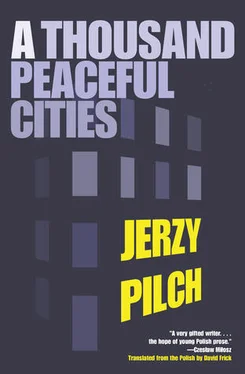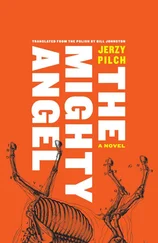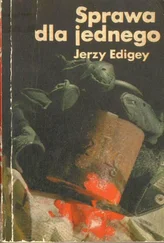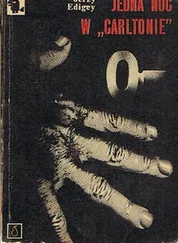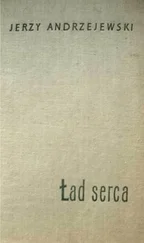“I have solved their secret, Chief, but only in the visible, which is to say in a highly inferior, aspect,” he said to Father in partial triumph.
•
Mr. Trąba was a diminutive, darkish, and dreadfully skinny man. He was deceptively similar to Bruno Schulz, both in the soft intonation of his voice and in his polite gestures.
“Always, everywhere, and everybody, Chief, everybody took me for a Jew. I never regretted this. On the contrary, I was happy about it. Although we both know that being a Lutheran in Poland means having an even more subtle existence than being a Jew in Poland. There once were Jews in Poland, and now there are none; but once there were no Lutherans, and now there are none of us too.”
The spaces of nothingness, white as snow in Mr. Trąba’s squat and stumpy silhouette, lent him deadly charisma. That summer his hands shook more and more, his features were becoming sharper and sharper, and the smell of spirits never left him. Mr. Trąba more and more frequently, and with greater and greater desperation, expatiated upon the end of his world.
“The shame of it aside Chief, I think that before the sudden end of your life arrives you must do two things: you must do something for humanity, and you must discover how, in operative terms, those sorceresses live with the Antichrist. And I said to the Lord: ‘Lord, give me the strength of the trumpets that swept away Jericho, that I might sweep away this and that,’ and I set off in pursuit of them.”
Unfortunately, Mr. Trąba’s story about his pursuit of the morphinistes was a story without a turning point and without a conclusion. He followed them closely, never losing sight of them even for a moment. He heard their voices, even their breathing. Anyway, they very quickly noticed his presence, and they paid him no attention. Once or twice they looked over their shoulders in his direction, and that was that. They were clearly accustomed to the more or less camouflaged sleuth-hounds constantly at their heels. Finally, as was to be expected, they reached a little clearing in the depths of the forest. The morphinistes spread the cover, stripped to their beachwear, and made the crimson-golden blanket into something like a rampart encircling their camp. They lay down, and all around there was absolute silence. An hour passed, maybe two. Mr. Trąba wasn’t able to report accurately on the passing of time. Doubtless he dozed for a good while. After all, he hadn’t set out on such an expedition empty-handed. Even now, after more than thirty years, as I laboriously attempt to recreate, step by step, all the murderous scenes of those seasons, I see precisely this scene — even though I didn’t see it, nor did anyone mention this detail to me — precisely this scene, with infallible clarity. Mr. Trąba hastens through the forest on Buffalo Mountain in his silvery-black suit. The morphinistes lug the huge blanket, look over their shoulders, whisper something to each other, giggle. Mr. Trąba picks up the pace, and yet he stops time and again, draws from his breast pocket a soldier’s flask that once upon a time an exceptionally — and just how exceptionally! — cultured detachment of the victorious Red Army had given him. And time and again he takes refreshment, and time and again, with the help of repeated sips of the rectified spirits he had mixed with huckleberry compote, he intensifies the will to pursuit and inquiry in himself. If that is how it was — and that is surely how it was — I can’t rule out the possibility that the remainder of Mr. Trąba’s account was the report from a narcotic dream, which may have taken him in its embrace in the amicable ferns on the edge of the clearing. And so, for at least two hours, complete silence reigns there, absolute peace. Nothing happens. And yet, when the time is up, and the hour rings, a secret movement among the bed of leaves and needles commences and macabre shadows, the phantoms of forest people, an entire throng, begins to creep out from the backwoods. According to Mr. Trąba they were tramps, social outsiders, fugitives, and refugees, with faces flogged by the wind. Riffraff and savages, fallen intellectuals and incurable alcoholics. There was allegedly even a certain writer who, to cover his tracks, had mixed in with this obscure little band and taken up residence in a primitive hut. There was, as Mr. Trąba feverishly asserted, an incredible psychopath with a hateful glance. There was — Mr. Trąba swore on all that was holy — a Stalinist butcher who was devoid of human feeling, and God knows who else. And that wild crowd of men, prey to untamable desires, was gathered a short distance from where the morphinistes were entrenched in their Babylonian blanket; and they remained quite motionless, and nothing further happened. Granted, the forest hobos cast greedy glances from time to time. New arrivals emerged from the forest, joining their colleagues in the clearing and gaping at the morphinistes’ lair. They even bowed awkwardly. But nothing else — no crude remarks or gross propositions, just peace and quiet; although, as Mr. Trąba emphasized, it was a peace and a quiet that was full of a singular tension. And that’s how it was until dusk, when the morphinistes, with identically melodious motions, arose from the flames surrounding them, dressed, collected all they needed, and set off on their return trip. Then the forest people also began to melt away. In ones, twos, and threes they disappeared into the thickets. Mr. Trąba also arose from his observational lair (perhaps he awoke from amicable dreams?), refreshed his clothing as best he could, and set off toward home.
•
“But I no longer hurried. I didn’t even try to keep them in sight. After all, you, Chief, have proved to me time and again that to see what is visible means to see nothing. But if nothing other than what I saw was going on there, then I, Mr. Trąba, am full of admiration for the modesty and restraint of those virtuous girls. For they surrender themselves to a dissipation that is so wantonly refined that their dissipation borders on the lack of dissipation. They pollute themselves on the brink of asceticism, and that always deserves respect.
“There remains one more thing, Chief, one more, before I take my leave of it forever. . one more thing to do for it. . to do for humanity.”
“I don’t like what you’re saying, Mr. Trąba,” Father put down The People’s Tribune huffily, “I don’t like what you’re saying, because pride lurks in the extravagance of the certainty of one’s own death. We’re all going to die, Mr. Trąba. Why do you wish to make your own death conspicuous and give it the devil knows what sorts of sacred missions?”
“Because I know that it won’t be long, Chief. I know, irrefutably, that it won’t be long.”
“Mr. Trąba, as long as I have known you — and I have known you for twenty-five years — you have guzzled rectified spirits every day. You walk around in rubber boots without socks. You don’t put on appropriate underwear in winter. The last time you fired up the stove was to honor the death of Joseph Stalin. You are as healthy as an ox, and you will outlive us all.”
“God forbid, Chief, God forbid it be so. Apart from everything else, life itself has become repellent to me. But the thing is, Chief, that I have proof, I have unshakable and irrefutable proof that death is approaching, and it is already near.”
“You yourself, Mr. Trąba, by the very fact that you continue to live, refute all signs and proofs of your approaching death. And what good will it do you, Mr. Trąba? Don’t you realize what an awkward situation you’re letting yourself in for? As far as I’m concerned, go ahead, knock yourself out, but you’re also blaspheming in the presence of a minor,” and Father nodded in my direction.
Читать дальше
